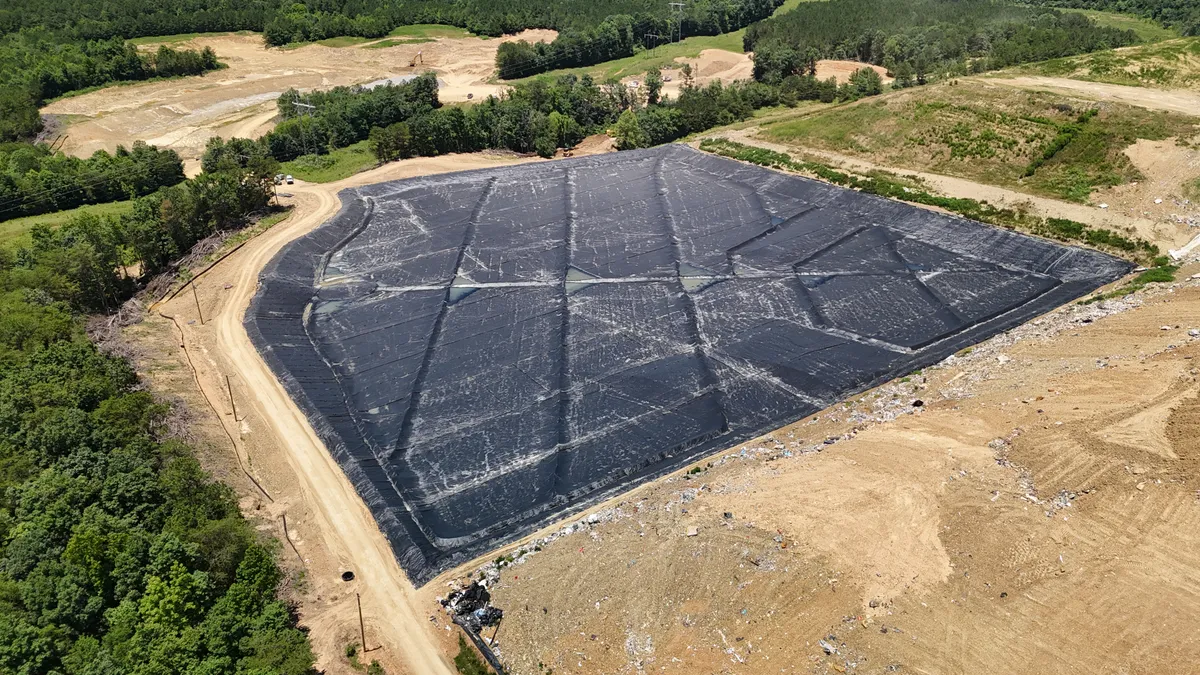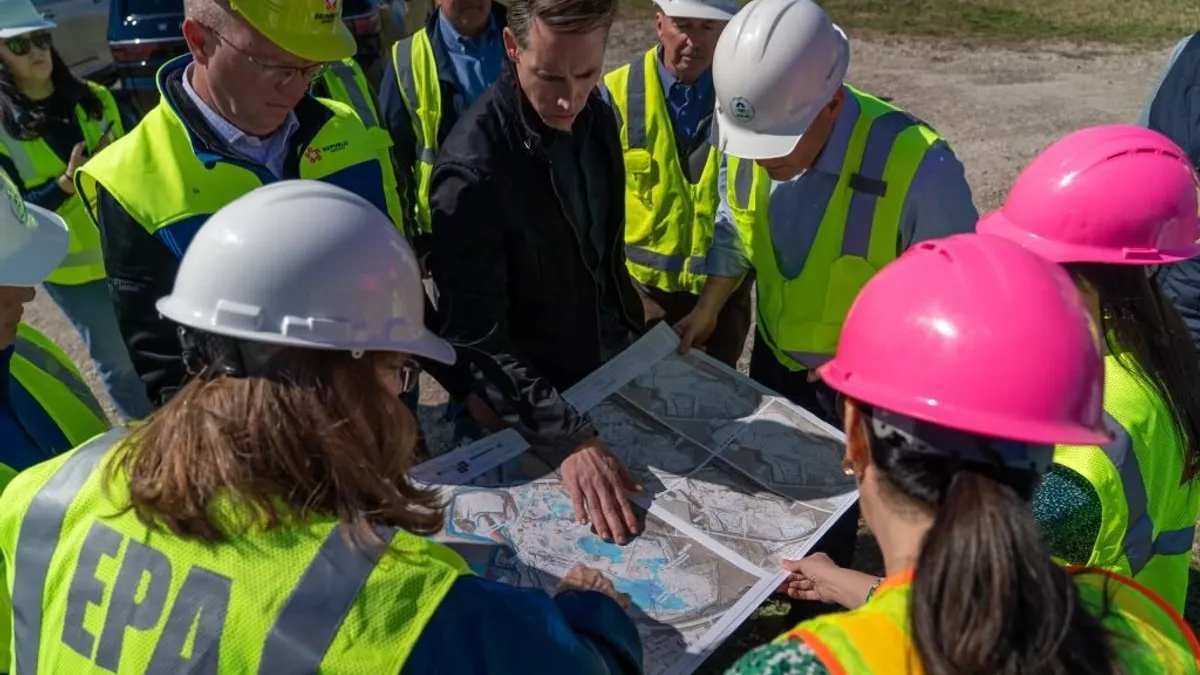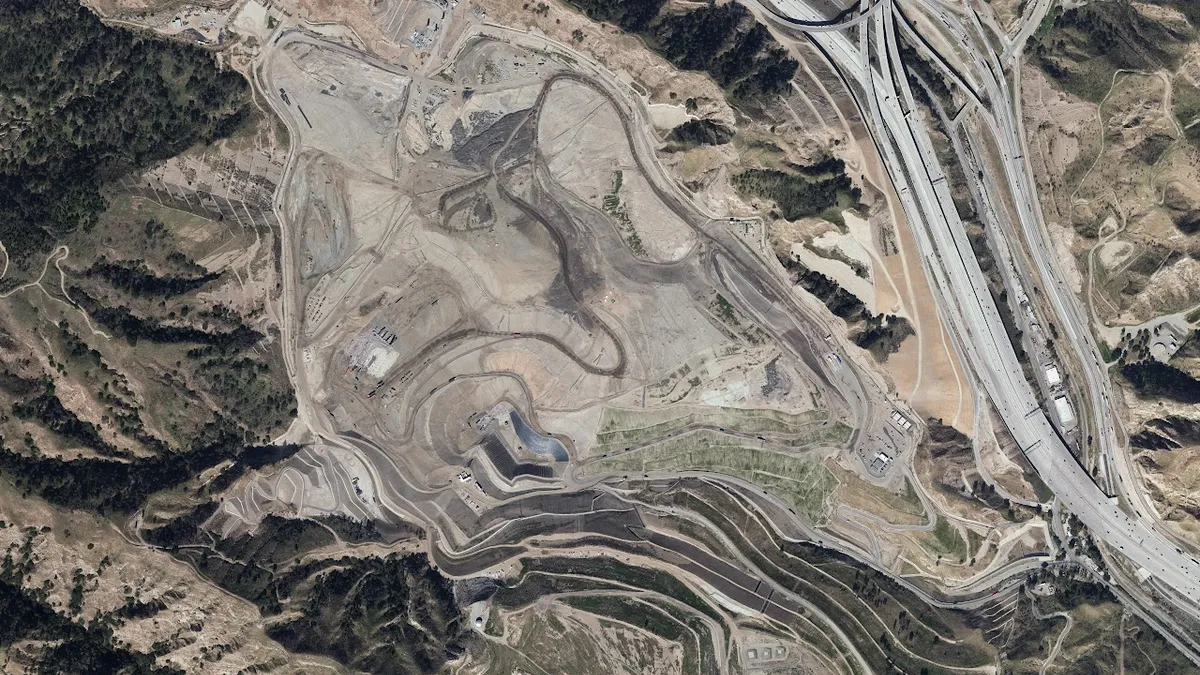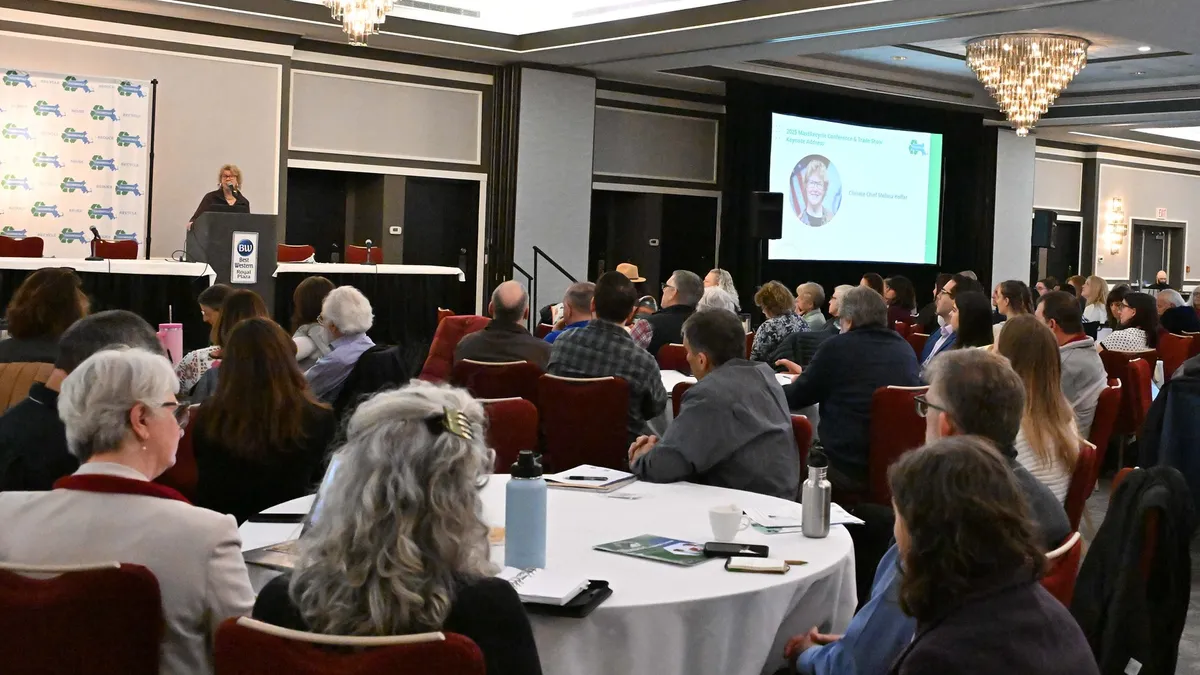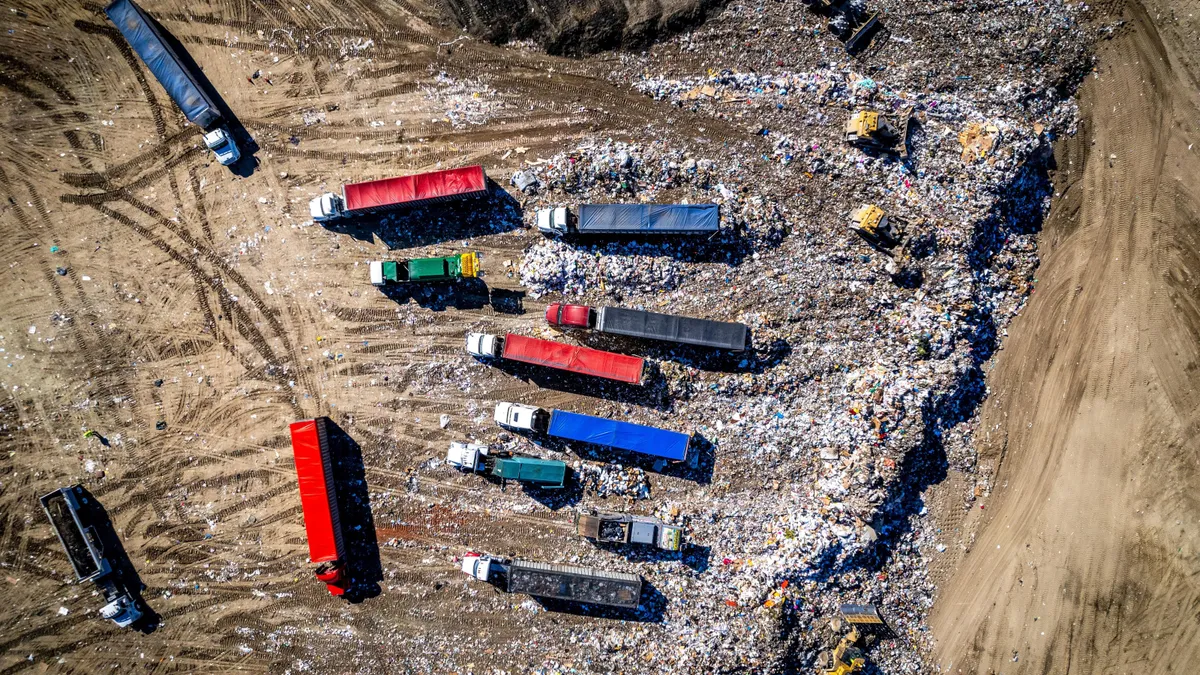Landfill operators seeking expansion approvals continued with public outreach, site development plans and construction throughout the spring. Here’s a look at some of the more notable recent developments from May and June.
Capital Waste completes first of two landfill expansion projects
Capital Waste Services is in the process of expanding two landfills it acquired as part of a divestiture agreement stemming from Republic Services’ 2021 acquisition of Santek Waste Services. The company said these projects are intended to address a lack of capacity in the region and continued demand.
The first completed project was a 7.5-acre expansion of the Murray County Landfill in Chatsworth, Georgia. The new cell did not require an expansion permit as it took advantage of a previously permitted plan to build 20 cells at the facility, CEO Matt Parker said in an email.
The landfill first began receiving waste in 1988 from Northwest Georgia, according to its most recent air permit application. The facility still has more than 17 million cubic yards of airspace and accepts about 400,000 tons of waste per year. At that rate, the facility has about 30 years of life left, according to Paul Marks, director of post collections at Capital Waste.
The company is also about two weeks away from completing an expansion of the Rhea County Landfill in Dayton, Tennessee. Parker said a plan to expand the Rhea County Landfill "had long been discussed" between the owners and Rhea County, even before its acquisition.
The Rhea County Landfill expansion permit, approved in December, adds about 54 acres to the facility and 33 years of useful life. The facility accepts roughly 500,000 tons per year. Before the expansion, the landfill was expected to close within a few years, the Chattanooga Times Free Press reported.
Capital Waste Services has grown in recent years as a portfolio company of private equity firm Kinderhook Industries. It is also now a subsidiary of GFL Environmental.
Republic Services seeks Coffin Butte landfill expansion
After a previously failed expansion attempt, Republic Services is launching a new public engagement process to try and expand its Coffin Butte Landfill in Oregon, the Corvallis Gazette-Times reported. The landfill operator held two live meetings in June and is holding a virtual hearing to discuss its new proposal on July 9.
The news comes as Republic estimates the landfill is set to run out of useful life. It has faced strong opposition from local officials and the surrounding community, who said the last process left unanswered questions about public health impacts on the neighboring community.
About 70% of the waste Republic handles at the landfill comes from the surrounding five-county area, Republic told the Benton County Planning Commission during its previous permit application in 2021. At the time, Republic said it employed 89 employees and operated 30 compressed natural gas-powered trucks in the area.
The company said a new 49-acre disposal area would add 12 years of additional life to the landfill. In 2021, Republic estimated it had about four years of life remaining in the active cell and 15 years of life available in a cell planned for a quarry that the operator was still clearing and prepping for waste disposal.
In addition to noise and odor concerns, the landfill has also drawn attention for its emissions. While the Coffin Butte Landfill has more than 300 gas wells, Greenhouse Gas Reporting Program data analyzed by Don’t Waste Our Future shows that the landfill is the sixth-highest emitter of methane among large industrial facilities in Oregon, producing about 104,334 metric tons of carbon dioxide equivalent in 2022.
Republic says it has been adhering to odor, noise and groundwater regulations and would continue to do so should the expansion occur.
Expansion plans for WM’s Monarch Hill landfill continue
Hearings to consider two aspects of WM’s proposed expansion of the Monarch Hill Landfill in Broward County, Florida, have been postponed, but officials continue to debate the project behind the scenes, according to local news reports.
WM has proposed changing its land use plan to add 24 acres to the 382-acre disposal site. It aims to repurpose land once occupied by the Wheelabrator North incinerator, which closed in 2015 and was demolished in mid-June. WM is also asking for a code amendment allowing the landfill to go from 225 feet to 325 feet. The combined changes could help extend the life of the landfill by 16 years.
The Broward County Commission was scheduled to consider the land use change in May, but postponed the meeting until an indeterminate time later in the summer. In June, it asked county staff to start drafting an ordinance that would allow the landfill’s height change, according to TapInto Coconut Creek.
The project has long received pushback from residents and officials in surrounding communities, some of whom have dubbed the landfill “Mount Trashmore” because of its height. Officials in Coconut Creek, Deerfield Beach and other communities say the plans would increase truck traffic on local roads and generate odors. Some city officials have asked residents to call the county commission to oppose WM’s changes.
As of July, Monarch Hill has about six years of capacity remaining, WM said. The landfill takes in about 5,000 tons of material a day, but it can no longer accept hurricane or storm debris. WM anticipates that without the expansion, waste will need to go to the Okeechobee Landfill almost 100 miles away.
About 90% of Monarch Hill’s inbound waste is C&D or bulk waste. WM has said it could stop accepting MSW if the expansion plans are approved.
Maine city initiates Hatch Hill Landfill expansion process
Officials in Augusta, Maine, have submitted an application to begin the process of vertically expanding the city’s Hatch Hill Landfill, which they say will be full in about four years. The project could cost about $18.2 million and add about 14 years of use to the landfill, according to the Portland Press Herald. The proposal calls for adding 600,000 tons of capacity to the landfill.
The city submitted the application to the state’s Department of Environmental Protection in May, but officials expect the approval process to take about a year. The current remaining capacity is 165,000 tons. Officials are also considering restricting landfill access to only Augusta residents, if necessary, which could extend the life of the landfill up to 100 years.
Augusta decided to pursue a vertical option instead of a horizontal expansion, saying it might be easier to get a permit approved for that process. A prior state report indicated that Augusta hoped to begin construction on the expansion by 2026.
Officials have been mulling expansion options for several years and hired a consultant in 2021 to lay out different costs and strategies. The landfill operator recently completed a $1.64 million upgrade to add gas collection wells and install a new geomembrane cover. The project was also meant to prepare the landfill for an eventual expansion, according to Sargent, the project contractor.




